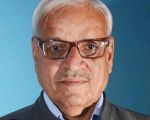In an open democratic society like India, the mass media plays a variety of roles. It acts as a watchdog, holds those in power accountable, and serves as a bridge between the government and the people.
Political commentator Prof. Paras Nath Chaudhary says, “An informed voter is crucial for a functioning democracy as it empowers citizens to engage in political discourse and deliberate on social issues. Moreover, journalism fosters public debate and discussion, which are essential ingredients for collective decision making and social progress.”
However, journalists in non-metro cities of India face significant challenges that undermine their ability to fulfill this role. The most prominent issues include press freedom, which is always under pressure from those in power.
Journalists often face threats, harassment, and even violence, especially when they cover sensitive issues such as corruption, communal tensions, or government misconduct. According to senior journalist Ajay Jha, “Fear of retaliation can lead to self-censorship, which stifles the very essence of investigative journalism on which democracy depends.”
Journalists are often accused of bias, blackmail, and spreading falsehoods, but no one sympathizes with their highly stressful schedules, poor working conditions, and low wages, which are widespread in the journalism industry, especially in smaller cities where resources are limited. Many journalists struggle with low wages that often do not reflect their skills or the risks they take. This financial stress can lead to ethical dilemmas, as journalists may be pressured to compromise their integrity for financial survival or to serve the interests of their employers.
Mukta Gupta, associated with Media/PR, says, “Moreover, the rapid digitalization of news has created a ‘demand-focused market’, where journalists are required to deliver high-quality content while being proficient in multiple platforms. The prevalence of misinformation also complicates the role of journalists, as they are tasked not only with reporting facts but also with combating false narratives and protecting the integrity of information.”
According to veteran media consultant Tapan Joshi, “Access to resources and training further exacerbates the challenges faced by journalists in non-metro areas. Most do not have opportunities for professional development, which hinders their growth and limits their ability to adapt to the evolving media landscape. This skill gap can lead to poor reporting and a serious lack of understanding of complex issues.”
Journalists are expected to write the truth, stand up against injustice, question those in power, expose the wrongdoings of criminals, and uphold democracy. At some point in every situation, the public, local leaders, and social workers turn to journalists. When people need publicity, they remember the journalists. But have you ever asked journalists about their salaries? Have you ever inquired about their domestic circumstances? Most journalists do not have savings for their own and their family’s treatment? No one cares to know how many hours journalists spend in the field and then at their desks writing news that reaches home at 11, 12, or 1 am. The bitter truth is that for most journalists, there is neither glamour nor fun. When a journalist receives a threat, neither the media house nor the administration is willing to provide security. If a journalist becomes a victim of an accident and is no longer fit for work, no one helps? During riots, arson, earthquakes, shootings, accidents, and incidents, journalists have to reach everywhere to cover the news. Even during the pandemic, journalists, especially photojournalists, risked their lives to cover the news.
Like other professions, some wrong elements have also entered the media, and their actions are used to try to put the entire media fraternity in the dock.
On the other hand, it is also true that some journalists are on the payrolls of politicians and corporates. But no media organization can survive for long if it compromises its honesty and credibility for monetary gain. India has been fortunate to have a long line of truth-fighters and crusaders for public issues in the media. They had the courage to stand against the establishment and the rulers. These days, some undesirable trends are clearly visible as the line between fact, opinion, imagination, and drama is becoming blurred. Technology has taken over and market forces are influencing the direction of change, but overall, the mass media is treading cautiously and responding effectively to the challenges of the new era.





